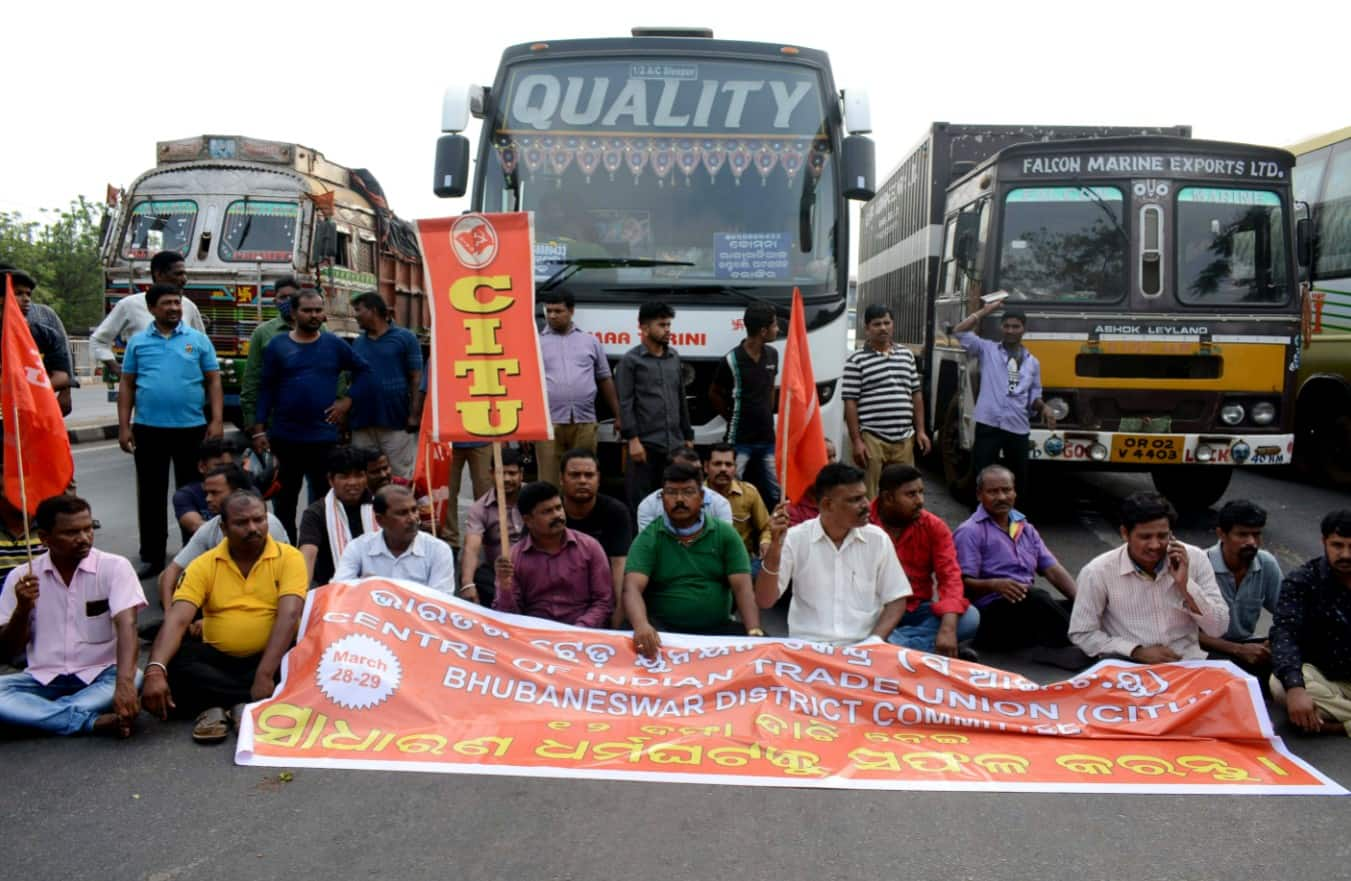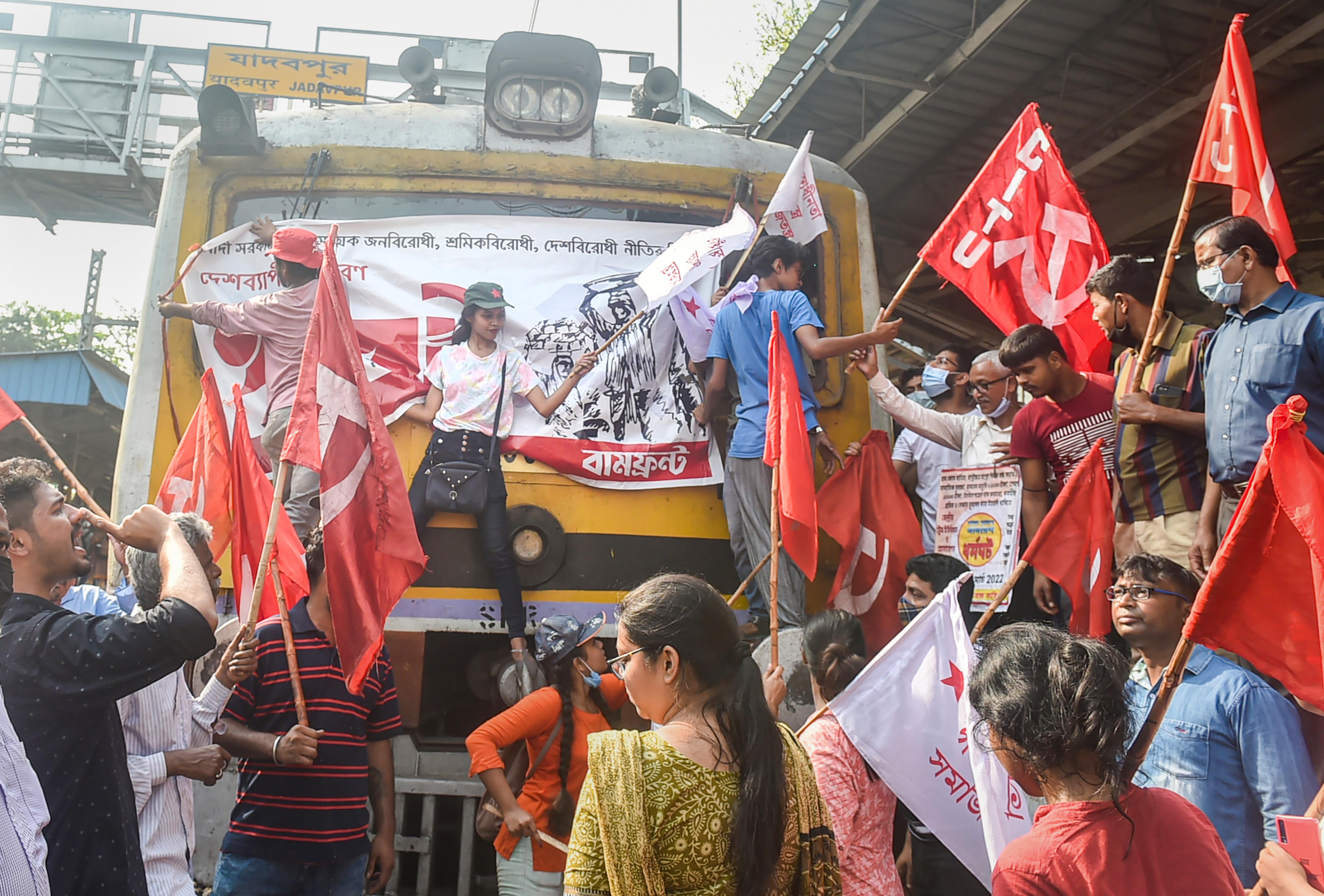Bharat bandh day 2: Nationwide strike likely to hit banking, transport and other services again
The joint forum of central trade unions, which has called for the two-day strike that started on Monday, has said that the bandh-like situation prevailed in at least eight states due to the nationwide strike against various policies of the government.
Trending Photos
) A Paramilitary personnel stands guard outside a closed bank during the two-day nationwide strike on Monday (Photo: ANI)
A Paramilitary personnel stands guard outside a closed bank during the two-day nationwide strike on Monday (Photo: ANI) New Delhi: The nationwide strike (Bharat Bandh) to protest against the policies of the Union government has entered day two and is likely to hit banking, public transport and other services again on Tuesday (March 29, 2022).
Essential services like healthcare, electricity and fuel supplies may, however, remain unaffected like day 1. Public offices, as well as educational institutions, are also expected to be not impacted by the strike called by nearly a dozen trade unions.
The joint forum of central trade unions, which has called for the two-day strike that started on Monday, has said that the bandh-like situation prevailed in at least eight states due to the nationwide strike against various policies of the government.
Some bank branches, particularly in cities with a strong trade union movement, did very limited over-the-counter public dealings such as cash deposits and withdrawals.
"There is a bandh-like situation in Tamil Nadu, Kerala, Puducherry, Andhra Pradesh, Telangana, Odisha, Assam, Haryana and Jharkhand," the forum said in a statement on Monday.
According to the forum, agitations were held in many industrial areas across states like Goa, Karnataka, Maharashtra, Chhattisgarh, Punjab, Bihar, Rajasthan, West Bengal, Meghalaya and Arunachal Pradesh.

In Maharashtra, volume data from clearing houses and cash replenishment at Automated Teller Machines (ATMs) was not immediately available, though the striking employees claimed that they had a deep impact.
Workers staged protests at several places and unions claimed the agitation has had an impact on coal mining belts in Jharkhand, Chhattisgarh and Madhya Pradesh.
The joint forum of central trade unions is protesting against the government policies affecting workers, farmers, and people. Their demands include the scrapping of the labour codes, no privatisation in any form, scrapping of the National Monetisation Pipeline (NMP), increased allocation of wages under MNREGA (Mahatma Gandhi Rural Employment Guarantee Act) and regularisation of contract workers.
In West Bengal, normal life was hit with protesters blocking roads and stopping the movement of trains at some stations.
State road transport buses, as well as auto-rickshaws and private buses, were off the road in Kerala but essential services, including supply of milk, hospital and ambulance services were not affected.

Public transport services were hit in Haryana as employees of state roadways joined the strike.
Thousands of workers of state-owned SAIL, RINL and NMDC also joined the strike, affecting production at steel plants and mines.
Banking services were partially impacted on Monday as a section of bank employees did not report for duty. Bank unions are protesting against the government's move to privatise two public sector banks as announced in Budget 2021-22. They are also demanding an increase in the interest rate on deposits and a reduction in service charges.
The central trade unions that are part of this joint forum are INTUC, AITUC, HMS, CITU, AIUTUC, TUCC, SEWA, AICCTU, LPF and UTUC.
(With agency inputs)







)
)
)
)
)
)
)
)
)
)
